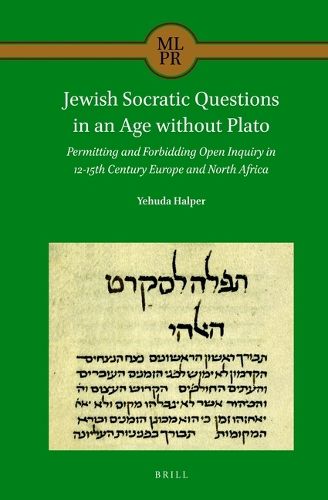Readings Newsletter
Become a Readings Member to make your shopping experience even easier.
Sign in or sign up for free!
You’re not far away from qualifying for FREE standard shipping within Australia
You’ve qualified for FREE standard shipping within Australia
The cart is loading…






Yehuda Halper examines Jewish depictions of Socrates and Socratic questioning of the divine among European and North African Jews of the 12th-15th centuries. Without direct access to Plato, their understanding of Socrates is indirect, based on legendary material, on fragmentary quotations from Plato, or on Aristotle. Out of these sources, Jewish authors of this period formed two distinct views of Socrates: one as a wise, ascetic, monotheist, and the other as a vocal skeptic. The latter view has its roots in Plato’s Apology where Socrates describes his divine mandate to question all knowledge, including knowledge of the divine. After exploring how this and similar questions arise in the works of Judah Halevi and the Hebrew Averroes, Halper traces how such open-questioning of the divine arises in the works of Maimonides, Jacob Anatoli, Gersonides, and Abraham Bibago.
$9.00 standard shipping within Australia
FREE standard shipping within Australia for orders over $100.00
Express & International shipping calculated at checkout
Yehuda Halper examines Jewish depictions of Socrates and Socratic questioning of the divine among European and North African Jews of the 12th-15th centuries. Without direct access to Plato, their understanding of Socrates is indirect, based on legendary material, on fragmentary quotations from Plato, or on Aristotle. Out of these sources, Jewish authors of this period formed two distinct views of Socrates: one as a wise, ascetic, monotheist, and the other as a vocal skeptic. The latter view has its roots in Plato’s Apology where Socrates describes his divine mandate to question all knowledge, including knowledge of the divine. After exploring how this and similar questions arise in the works of Judah Halevi and the Hebrew Averroes, Halper traces how such open-questioning of the divine arises in the works of Maimonides, Jacob Anatoli, Gersonides, and Abraham Bibago.